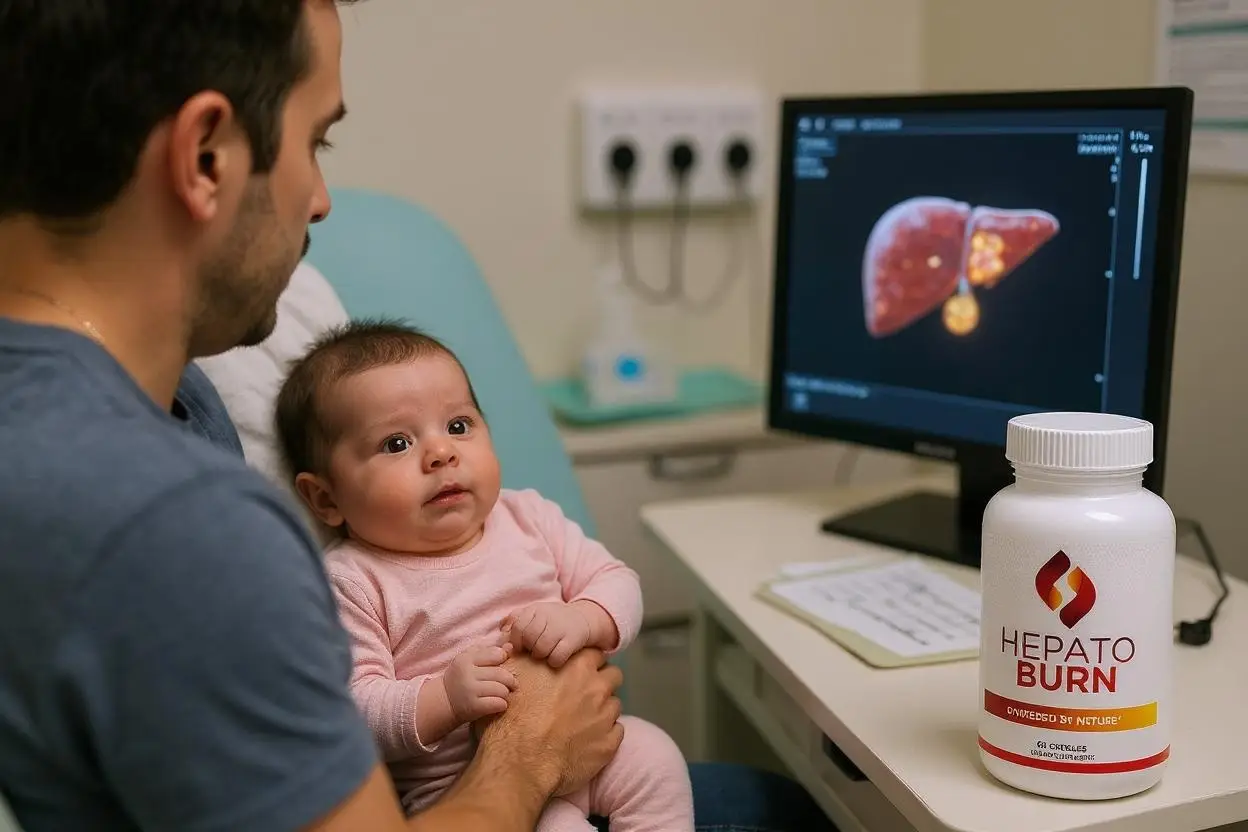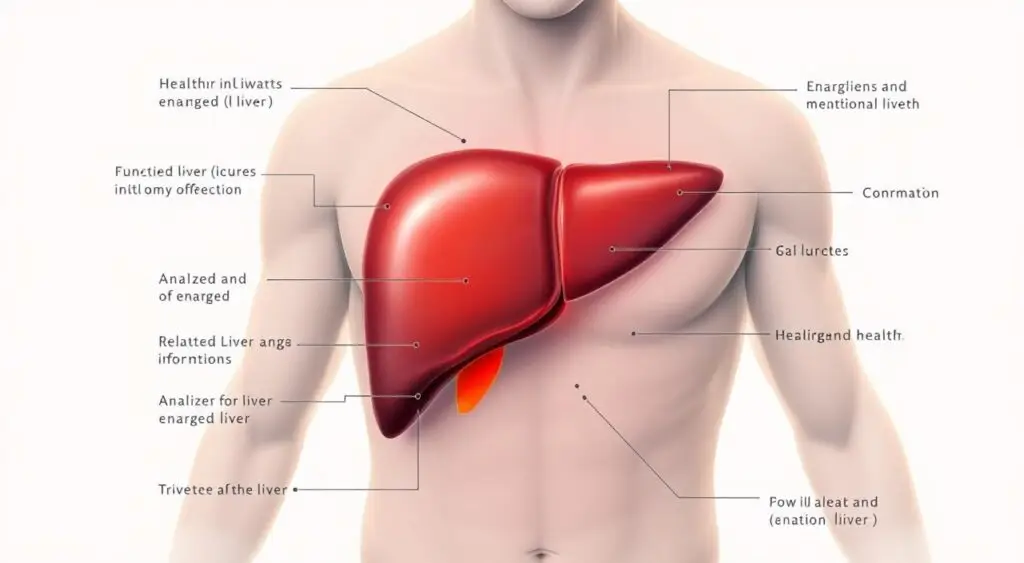When you first hear the words enlarged liver in infants, it feels like a punch to the gut, doesn’t it? Suddenly, all your worries as a parent seem to triple overnight. But hold on, before we spiral into panic mode, let’s break it down together so you can be empowered, not scared. This guide is gonna hook you up with everything you need to know about enlarged liver in infants, and, trust me, there’s hope—some facts might even surprise you in a good way.
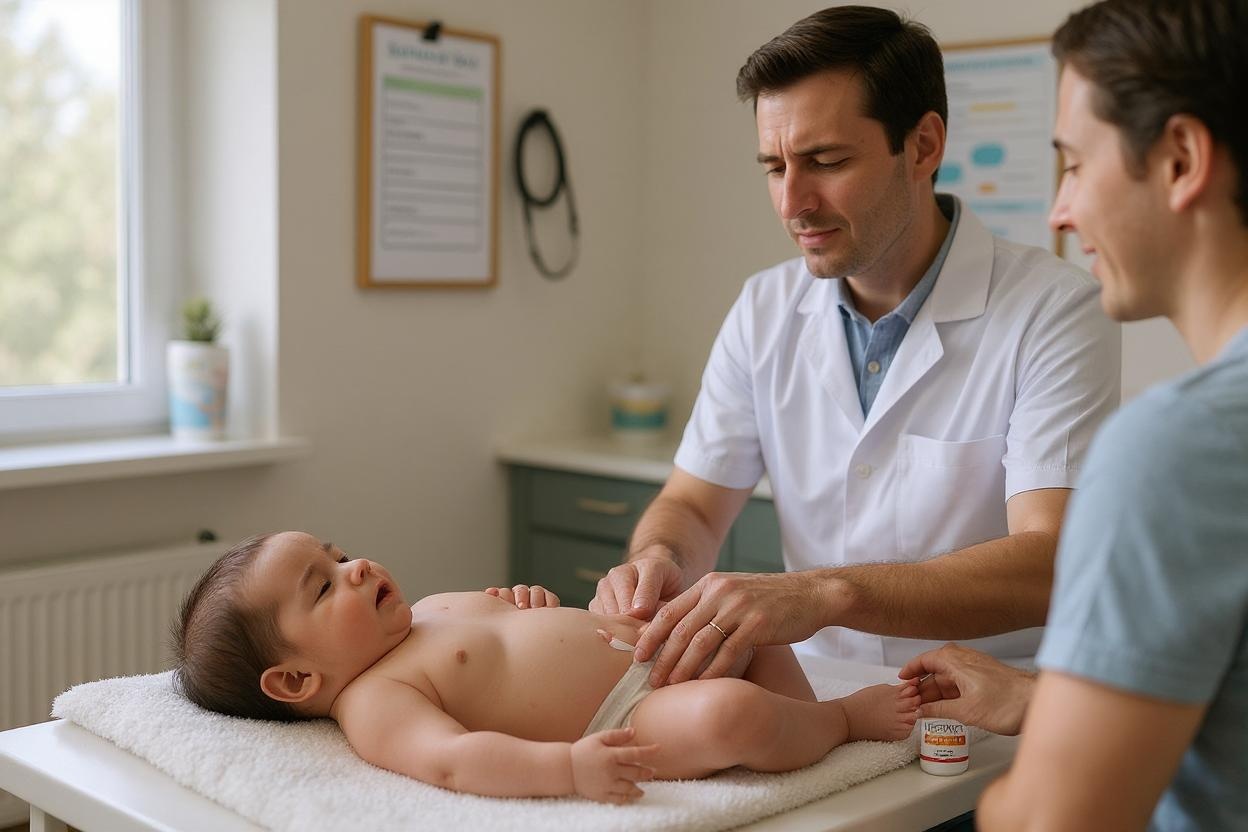
What Is Enlarged Liver in Infants?
Alright, so let’s keep it real for a sec. The medical term for an enlarged liver in infants is hepatomegaly. Basically, it means your baby’s liver is bigger than it should be. Now, this doesn’t automatically mean you need to freak out. The liver is one of those organs that does a lot of work, and sometimes it swells as a response to different conditions. The super important thing is to understand what’s causing it and what you can do.
How Big Is Too Big?
Babies are tiny but mighty. Still, the liver shouldn’t feel like it’s taking up the whole side of their belly. Usually, doctors find an enlarged liver in infants during routine checkups or if there’s other symptoms going on.
- The normal liver in a healthy infant is usually not easily felt more than 1–2 cm below the right costal margin.
- If it’s much bigger than that, your doc will want to dig deeper.
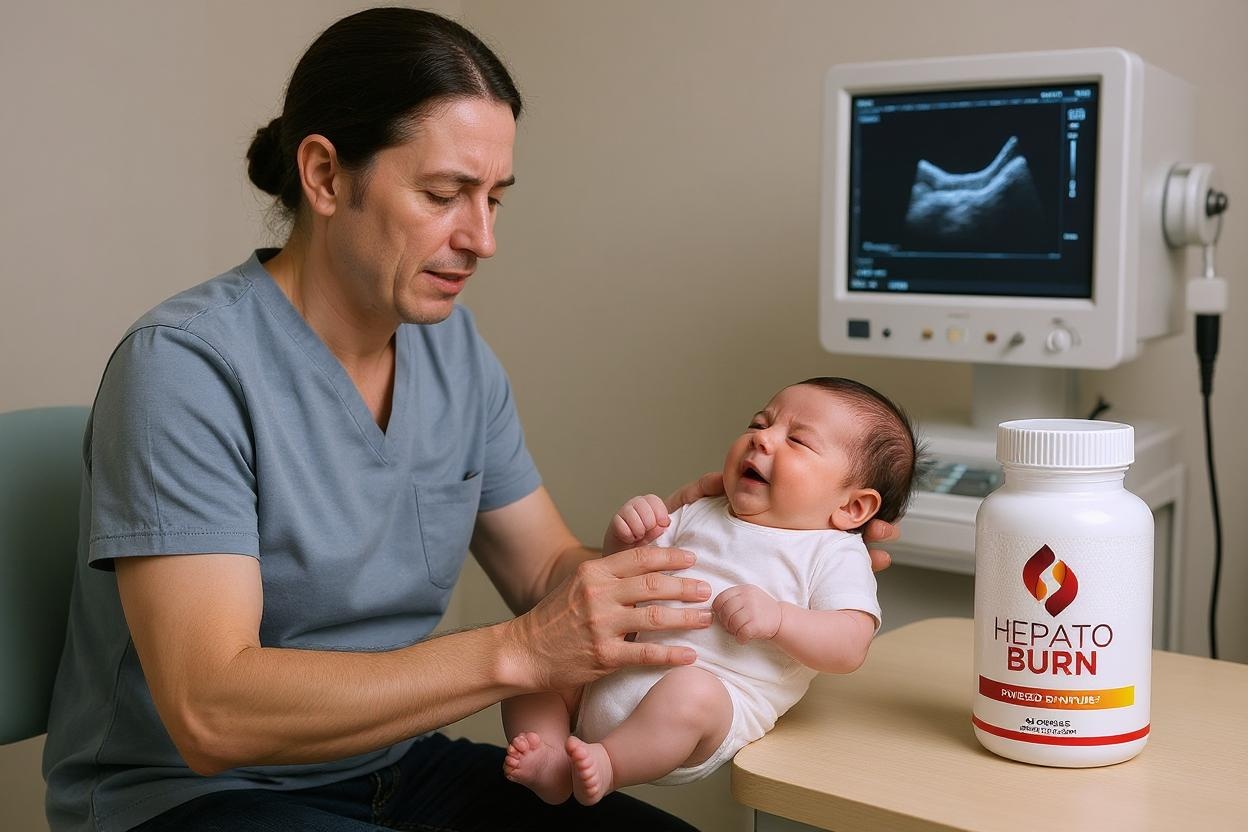
Common Causes of Enlarged Liver in Infants
This is the area folks really want answers about—why does the liver get enlarged in infants?
- Infections: From regular ol’ colds to more serious viruses, infection is a major trigger for an enlarged liver in infants.
- Metabolic Disorders: Sometimes, babies have inherited conditions that mess with how their body handles fat, sugar, or proteins.
- Heart Problems: When a baby’s heart isn’t pumping like it should, blood can back up into the liver, making it swell.
- Liver Diseases: Direct diseases like hepatitis, fatty liver, or biliary atresia (a blockage of bile ducts) can be biggies.
- Cancer or Tumors: Much less common thankfully, but not impossible.
Symptoms to Watch for in Enlarged Liver in Infants
Parents, your instincts are priceless here. Besides the liver itself feeling big or swollen, other symptoms to peep include:
- Yellow skin or eyes (jaundice)
- Poor feeding or slow weight gain
- Vomiting or irritability
- Dark urine or pale stools
- Swollen belly or trouble breathing
- Fever or strange rashes
If your baby is showing some of these, don’t wait. Get that lil’ one checked out ASAP.
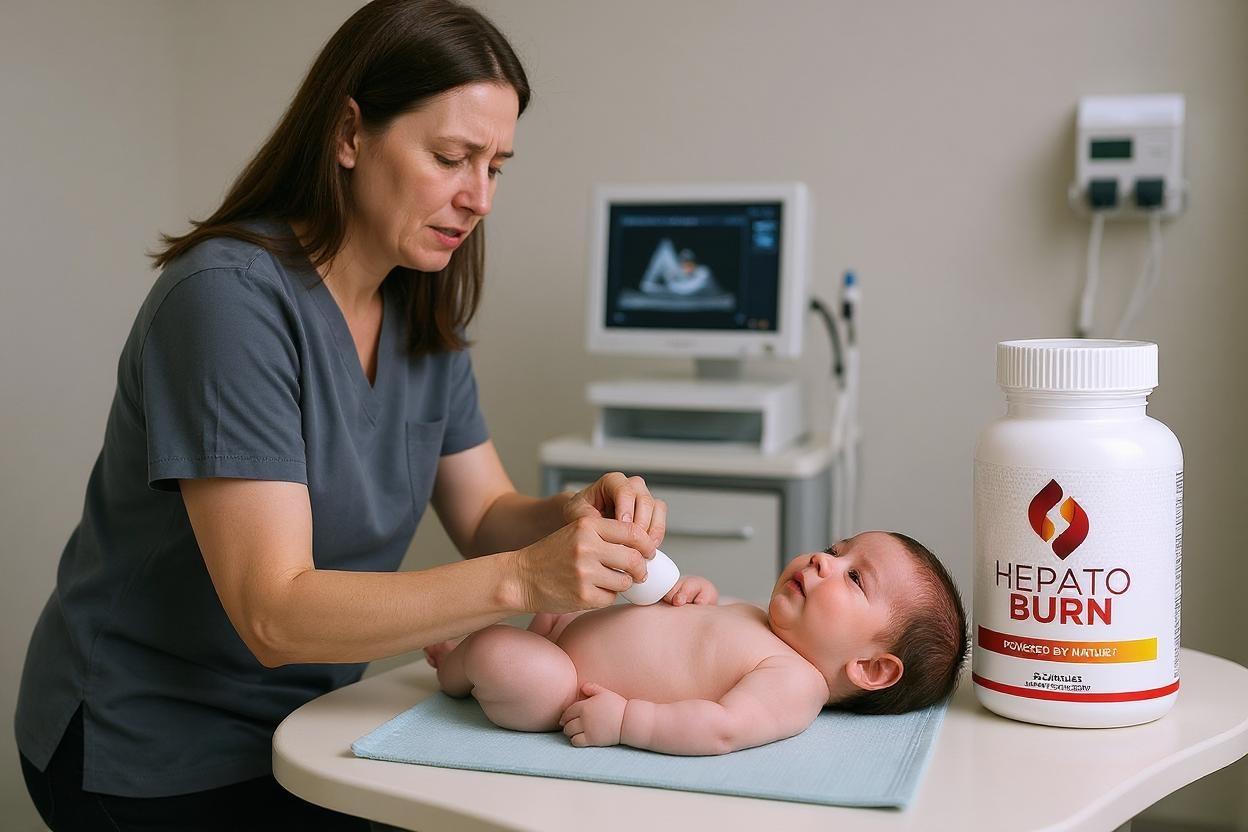
When To See a Doctor STAT?
- Severe or sudden swelling
- Trouble breathing
- Extreme sleepiness
- Not peeing or eating for hours
These are big red flags and you should go to the ER pronto.
Diagnosis: How Doctors Check Enlarged Liver in Infants
The path to figuring out enlarged liver in infants includes a combo of things—kind of like solving a puzzle.
- Physical Exam: Your pediatrician will gently feel your baby’s tummy.
- Blood Tests: To check for infections or underlying diseases.
- Ultrasound: Gives a clear image of what’s going on in the liver and abdomen.
- Other Scans: Sometimes, a CT or MRI might be needed.
- Biopsy: Rare, but if it’s really unclear what’s happening, a small sample might need to be tested.
Usually, with all these tools, doctors can get to the bottom of what’s up with that enlarged liver in infants.
Will My Baby Need a Lot Of Tests?
Sometimes yes, and it stinks to see your little one poked and prodded. But each test gets your docs one step closer to helping your kiddo feel better. Hang in there!
Treatment Options for Enlarged Liver in Infants
Treatment totally depends on what’s causing the liver to swell. Let’s break down what can be done:
- Treat the Underlying Cause: This could mean antibiotics for an infection, special diets for metabolic problems, or surgery if a duct is blocked.
- Supportive Care: IV fluids, gentle feeding schedules, and rest.
- Medications: Sometimes, certain drugs help reduce inflammation or manage symptoms.
- Surgery or Procedures: Rare, but possible if there’s a blockage, tumor, or other anomaly that needs fixing.
- Liver Transplant: This is the absolute last resort for severe, non-reversible cases.
For many conditions, the outlook for babies with enlarged liver in infants has gotten way better thanks to early diagnosis and treatment options. Medical teams nowadays are total rockstars!
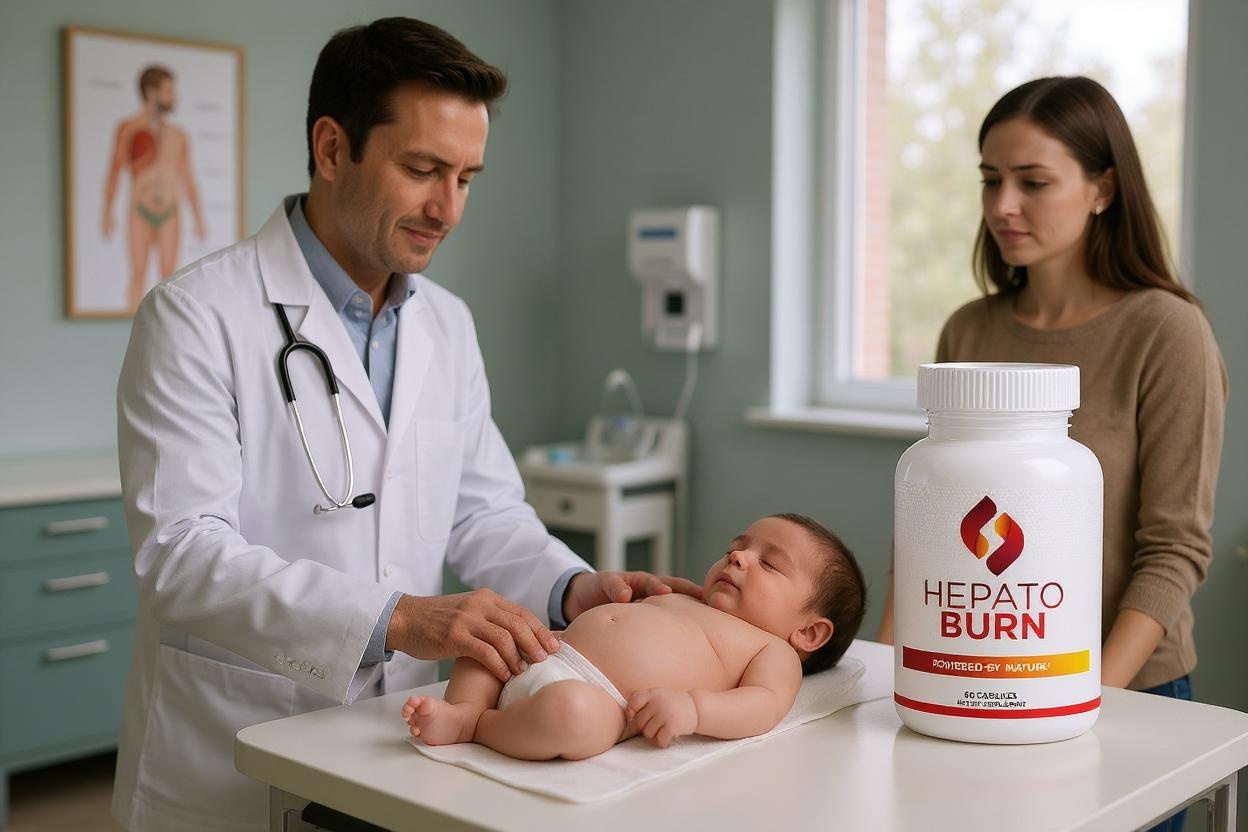
The Role of Liver Detox for Babies and Care for Parents
This may seem a bit out there, but more and more, families are peeking into natural support methods—for themselves, of course, not their infants. While enlarged liver in infants is a complex medical issue requiring a doctor’s care, many parents want to do what they can to keep their own livers (and the home environment) as healthy as possible. After all, healthy parents are more present for their little ones.
Here’s where natural liver detox methods, like Hepato Burn Liver Detox, enter the game. Grown-ups, especially those with family histories of liver concerns or just wanting to be at their best, use these types of formulas to support optimal liver function, fat burning, and overall wellness.
Why Parents Choose Hepato Burn Liver Detox
- Dual Action Formula: Promotes natural fat burning while supporting liver health—two birds, one stone.
- Natural Ingredients: Zero sketchy chemicals; it’s plant-based and safe for long-term use.
- Awesome Value: More bang for your buck compared to most other detox products out there.
Ready to give your body and mind a boost while your baby recovers? Learn more about Hepato Burn Liver Detox and take small steps to a healthier life!
Prevention and Supporting Liver Health in Infants
Straight up, not every case of enlarged liver in infants can be prevented, but some healthy habits lower the chances. Key tips:
- Get All Vaccinations: This helps dodge some infections that can hurt the liver.
- Avoid Toxins: Keep household chemicals, spoiled foods, and unknown herbs OUT of your baby’s reach.
- Monitor Feeding: Stick to your pediatrician’s advice on what, how, and when to feed your infant.
- Healthy Household: If adults in the home keep their livers healthy, that’s more support all-around.
- Regular Checkups: Catch issues early with all scheduled baby visits!
Diet and Nutrition for a Healthy Liver (For Parents!)
If you’re thinking long-term, supporting your own liver health sets a great example for your family. Some easy, tasty swaps:
- Load up on fruits and veggies—dark greens are king
- Cut back on processed food and sugar
- Pick healthy fats like avocados and olive oil
- Stay hydrated (water > soda, always)
- Stay active; daily walks, chasing after baby, or yoga
Don’t forget: Natural aids like Hepato Burn Liver Detox can give your efforts a little turbo-charge!
FAQs: Clearest Answers for Worried Parents
Will my child always have liver problems?
Nope! Many cases are temporary, especially if the cause is something treatable, like an infection.
Can you feel the liver yourself?
You might, but don’t rely on DIY diagnosis. Docs have the right touch and tools for this.
Can diet fix an enlarged liver in infants?
For infants, diet should always be discussed with a professional. Adults can definitely support their own liver health with the right foods and supplements like Hepato Burn Liver Detox as part of a healthy lifestyle.
Should I panic if my baby has an enlarged liver?
Nope! While it’s serious, don’t let fear run the show. Stay calm, get medical help, and keep learning.
The Emotional Side: Parent Power and Positivity
Let’s be real—hearing that your infant has a liver issue is totally overwhelming. You might feel guilt, anger, sadness, fear—all of the above in one day. That’s normal! But remember, you’re your baby’s number one advocate. Being proactive, well-informed, and surrounding yourself with good docs, good info, and good vibes goes a long way.
Support groups, open convos with your partner or family, and healthy routines for yourself help keep the whole crew strong.
Staying Hopeful: Most Infants Do Well
The great news is, most infants with an enlarged liver in infants go on to live happy, healthy lives—ESPECIALLY when issues get caught early. Science and medicine have come so far, and every little bit of care makes a difference.
Stick with the plan, have patience, and never be afraid to ask questions. You got this!
Key Takeaways for Parents
- Panic is useless; early action is priceless
- Work closely with your care team
- Keep up with all follow-ups and instructions
- Support your own health (don’t forget about Hepato Burn Liver Detox for parents!)
- Keep hope front and center
So there you have it—a thorough, down-to-earth guide to enlarged liver in infants. Share this with other parents, bookmark it, and remember: you are not alone on this journey.

